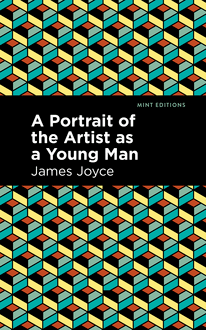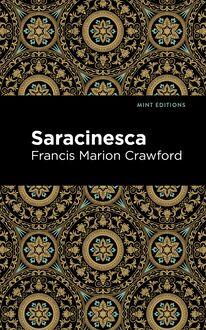-
 Univers
Univers
-
 Ebooks
Ebooks
-
 Livres audio
Livres audio
-
 Presse
Presse
-
 Podcasts
Podcasts
-
 BD
BD
-
 Documents
Documents
-
- Cours
- Révisions
- Ressources pédagogiques
- Sciences de l’éducation
- Manuels scolaires
- Langues
- Travaux de classe
- Annales de BEP
- Etudes supérieures
- Maternelle et primaire
- Fiches de lecture
- Orientation scolaire
- Méthodologie
- Corrigés de devoir
- Annales d’examens et concours
- Annales du bac
- Annales du brevet
- Rapports de stage
La lecture à portée de main
Vous pourrez modifier la taille du texte de cet ouvrage
Découvre YouScribe en t'inscrivant gratuitement
Je m'inscrisDécouvre YouScribe en t'inscrivant gratuitement
Je m'inscrisEn savoir plus
Vous pourrez modifier la taille du texte de cet ouvrage
En savoir plus

Description
The Triumph of Death (1894) is a novel by Gabriele D’Annunzio. The third in a cycle of novels exploring the lives of the Italian bourgeoisie, The Triumph of Death was inspired by the author’s interpretation of the work of Friedrich Nietzsche and Walter Pater. Considered a central text of Italian Decadentism, the novel has earned comparisons to the work of Oscar Wilde and Joris-Karl Huysmans. “When she perceived a group of men leaning against the parapet and looking down into the street below, Hippolyte stopped and exclaimed: ‘What has happened?’ With a slight gesture, betraying fear, she placed her hand involuntarily on George's arm as if to restrain him. After watching the men a moment George said: ‘Someone must have leaped from off the terrace.’” After witnessing a suicide, Giorgio Aurispa leaves Rome and his lover Ippolita to return to his family in Guardigrele. Reminded of the beauty of the mountains where he was born, he is soon drawn into conflict with his father, a vain nobleman who has left his mother for a mistress and spent every last penny of their immense family fortune. Reminded of his uncle’s tragic death, overwhelmed with his responsibilities as a son, Giorgio flees the mountains for the coast, buying a home in San Vito Chietino where he attempts to pick up where he left off with Ippolita. Gloomy and paranoid, Giorgio struggles to regain his sense of beauty, the only thing in life he ever loved. With a beautifully designed cover and professionally typeset manuscript, this edition of Gabriele D’Annunzio’s The Triumph of Death is a classic work of Italian literature reimagined for modern readers.
Sujets
Informations
| Publié par | Mint Editions |
| Date de parution | 21 juin 2021 |
| Nombre de lectures | 0 |
| EAN13 | 9781513294063 |
| Langue | English |
| Poids de l'ouvrage | 1 Mo |
Informations légales : prix de location à la page 0,0500€. Cette information est donnée uniquement à titre indicatif conformément à la législation en vigueur.
Extrait
The Triumph of Death
Gabriele D’Annunzio
The Triumph of Death was first published in 1894.
This edition published by Mint Editions 2021.
ISBN 9781513291215 | E-ISBN 9781513294063
Published by Mint Editions®
minteditionbooks.com
Publishing Director: Jennifer Newens
Design & Production: Rachel Lopez Metzger
Project Manager: Micaela Clark
Translated by: Arthur Hornblow
Typesetting: Westchester Publishing Services
C ONTENTS I. T HE P AST I II III IV V VI VII II. T HE P ATERNAL R OOF I II III IV V VI VII VIII IX X III. T HE H ERMITAGE I II III IV V VI VII VIII IX IV. T HE N EW L IFE I II III IV V VI VII V. T EMPUS D ESTRUENDI I II III IV V VI VII VIII IX VI. T HE I NVINCIBLE I II
I
THE PAST
I
When she perceived a group of men leaning against the parapet and looking down into the street below, Hippolyte stopped and exclaimed: “What has happened?”
With a slight gesture, betraying fear, she placed her hand involuntarily on George’s arm as if to restrain him.
After watching the men a moment George said: “Someone must have leaped from off the terrace.” Then he added: “Shall we turn back?”
She hesitated a few moments, wavering between curiosity and fear, and then replied: “No. Let’s see what it is.”
They advanced along the parapet as far as the end of the walk.
Unconsciously, Hippolyte accelerated her pace towards the small crowd that had gathered.
On this March afternoon the Pincio was almost deserted. Occasional sounds died away in the gray and heavy atmosphere.
“That’s what it is,” said George. “Someone has killed himself.”
They stopped close to the crowd. All the spectators had their gaze intently fixed upon the pavement below. Most of them were workmen without occupation. Their faces, each different, expressed neither compassion nor sorrow, and the immobility of the gaze imparted a sort of bestial dulness to their eyes.
A young lad came up, eager to see; but scarcely had he ensconced himself in a position satisfactory to himself than he was hailed by one of the bystanders, in an indefinable tone of jubilation and pleasantry, as if delighted that no new arrival could enjoy the spectacle. “You’re too late,” he cried; “they’ve taken him away.”
“Where to?”
“To the Santa Maria del Popolo.”
“Dead?”
“Yes, dead.”
Another individual, emaciated and of a greenish complexion, with a large woollen muffler around his neck, leaned half over; then, removing a pipe from his mouth, he shouted: “What’s that on the ground?”
His mouth was distorted on one side, seamed as if by a burn, and convulsed as if by an endless flow of bitter saliva. His voice was so deep that it sounded as if it emerged from a cavern.
“What’s that on the ground?” he repeated.
Down in the street below, a wagon-driver was squatting close to the foot of the wall. So as to hear his answer the better, the spectators became quiet and motionless. On the pavement could be seen a little blackish mud.
“It’s blood,” replied the wagon-driver without rising.
And with the point of a stick he continued his search in the bloody mire.
“Anything else?” asked the man with the pipe.
The wagon-driver rose. On the end of his stick he held something extended that could not be identified from above.
“Hair.”
“What color?”
“Blond.”
The precipice formed by the high walls lent a strange resonance to the voices.
“Let us go, George!” pleaded Hippolyte.
Disturbed and pale, she shook her lover’s arm, as he leaned against the parapet near the group, fascinated by the horror of the scene.
They silently left the tragic spot. Both were preoccupied with painful thoughts of this death, and sadness was visible on their features.
“Happy are the dead!” exclaimed George at last. “They have no more doubts.”
“That’s true,” replied his companion.
The weary tones in which both spoke seemed to indicate boundless discouragement.
She bent her head and added, with a bitterness mixed with regret: “Poor love!”
“What love?” asked George, preoccupied.
“Ours.”
“Do you feel that it is growing cold?”
“In me, no,” replied Hippolyte significantly.
“But you think it is in me?” persisted George.
An ill-concealed irritation lent sharpness to his words. Fixing his gaze on her, he repeated: “But you think it is in me? Don’t you?”
She remained silent, her head drooping still lower.
“You won’t answer? You know you’re not telling the truth.”
There was a pause. Both felt an unspeakable desire to read the other’s heart. Then he continued:
“That is how the agony of love begins. You are not as yet aware of it, but since your return I have studied you ceaselessly and I daily discover in you a new symptom.”
“What symptom?”
“A bad symptom, Hippolyte.” Then, in a burst of mental agony, he exclaimed: “Oh, how horrible it is to love and yet not lose one’s keenness of perception!”
She shook her head with a gesture of anger, and her face darkened. Once more, as on many previous occasions, hostility had risen between the two lovers. Each felt hurt by the injustice of suspicion, and secretly rebelled with that restrained anger which breaks out, from time to time, in brutal and irrevocable words, grave accusations and absurd recriminations. An indescribable fury seized them to torture themselves, to rend and martyrize their hearts.
Hippolyte became gloomy and silent. Her brows were knit in a frown and her lips were tightly pressed together. George regarded her with an irritating smile.
“Yes, that’s how it will begin,” he repeated, still smiling his disagreeable smile and fixing her with his keen glance. “You find at the bottom of your soul an inquietude, a sort of vague impatience which you cannot repress. When near me, you feel an instinctive repugnance arise in your breast against me—a repugnance which you cannot subdue. And then you become taciturn, you’re obliged to make an enormous effort to speak to me at all; you misunderstand everything I say, and, perhaps unconsciously, you speak crossly even about the most trivial things.”
She did not interrupt him even by so much as a gesture. Hurt by this indifference on her part, he continued to reproach her, spurred on to torment his companion not only by his sudden fit of temper, but also by a certain disinterested taste for investigation rendered the keener and the more literary by culture. He always tried to express himself with the accuracy and demonstrative precision which the works of the analysts had taught him; but, in the monologues, the formulas by which he interpreted his inner inquiry exaggerated and modified the mental condition under observation, while, in the dialogues, the preoccupation caused by being perspicacious often obscured the sincerity of his emotion and led him to err as to the secret motives which he claimed to discover in others. His brain, encumbered by a mass of psychological observations, personal or gathered from books, ended by confounding and confusing everything both as regarded himself and others.
He continued:
“Mind you, I make no reproach. I know it is not your fault. Every human soul has but a fixed quantity of sensitiveness for passion. It is inevitable that this quantity is exhausted in time and that no power can prevent the cessation of passion. Now, you have already loved me for a long time—almost two years! It will be the second anniversary of our love on the second of April. Had you thought of it?”
She nodded. He repeated, as if to himself: “Two years!”
They approached a bench and sat down. Hippolyte sank down with a weary sigh, as if overcome by an enervating weakness. The heavy black coach of a prelate passed by on the road below, the wheels rattling on the uneven cobblestones. The faint sound of a bugle came from the Flaminian Road, and then once more silence regained possession of the surrounding groves. A few drops of rain fell.
“Our second anniversary will be dismal,” he went on, without pity for his moody companion. “But we must celebrate it all the same. I have a fondness for bitter fruits.”
Hippolyte revealed her sorrow by a painful smile, and with unexpected gentleness said: “Why all these unkind words?”
She looked long and searchingly into George’s eyes. A second time an inexpressible desire to read each other’s hearts seized them. She knew well the horrible malady from which her lover suffered; she knew well the obscure cause of all his acrimony. To induce him to talk so he might unburden his heart, she added:
“What ails you?”
The tenderness of her tone, for which he was unprepared, threw him into some confusion. At this accent he knew that she understood him and pitied him; and he felt a great pity for himself swell in his bosom. A profound emotion stirred his whole being.
“What ails you?” repeated Hippolyte, touching his hand as though to sensually augment the power of her tenderness.
“What ails me?” he echoed. “I love!”
The aggressiveness had died away. In thus expressing his incurable weakness, he commiserated with himself on his own malady. The vague rancor which had ravaged his soul appeared to be dissipated. He recognized the injustice of all resentment against this woman because he recognized a superior order of fatal necessities. No, no human creature caused his misery. It arose from the very essence of life. He had to complain, not of the woman he loved, but of Love itself. Love, towards which his whole being reached out with invincible impetuosity, was, he thought, the greatest of human sorrows. And, until death possibly, he was condemned to this supreme misfortune.
As he remained silent and thoughtful, Hippolyte asked:
“Then do you think, George, that I don’t love you?”
“I believe that you love me now,” he answered. “But can you prove to me that tomorrow, or in a month, or in a year, you will still be happy to be mine? Can you prove to me that today, even at this very moment, you are wholly mine? How much of you do I possess?”
“Everything,” murmured Hippolyte.
“No,” he went on, “nothing, or almost nothing. And I do not pos
-
 Univers
Univers
-
 Ebooks
Ebooks
-
 Livres audio
Livres audio
-
 Presse
Presse
-
 Podcasts
Podcasts
-
 BD
BD
-
 Documents
Documents
-
Jeunesse
-
Littérature
-
Ressources professionnelles
-
Santé et bien-être
-
Savoirs
-
Education
-
Loisirs et hobbies
-
Art, musique et cinéma
-
Actualité et débat de société
-
Jeunesse
-
Littérature
-
Ressources professionnelles
-
Santé et bien-être
-
Savoirs
-
Education
-
Loisirs et hobbies
-
Art, musique et cinéma
-
Actualité et débat de société
-
Actualités
-
Lifestyle
-
Presse jeunesse
-
Presse professionnelle
-
Pratique
-
Presse sportive
-
Presse internationale
-
Culture & Médias
-
Action et Aventures
-
Science-fiction et Fantasy
-
Société
-
Jeunesse
-
Littérature
-
Ressources professionnelles
-
Santé et bien-être
-
Savoirs
-
Education
-
Loisirs et hobbies
-
Art, musique et cinéma
-
Actualité et débat de société
- Cours
- Révisions
- Ressources pédagogiques
- Sciences de l’éducation
- Manuels scolaires
- Langues
- Travaux de classe
- Annales de BEP
- Etudes supérieures
- Maternelle et primaire
- Fiches de lecture
- Orientation scolaire
- Méthodologie
- Corrigés de devoir
- Annales d’examens et concours
- Annales du bac
- Annales du brevet
- Rapports de stage




















